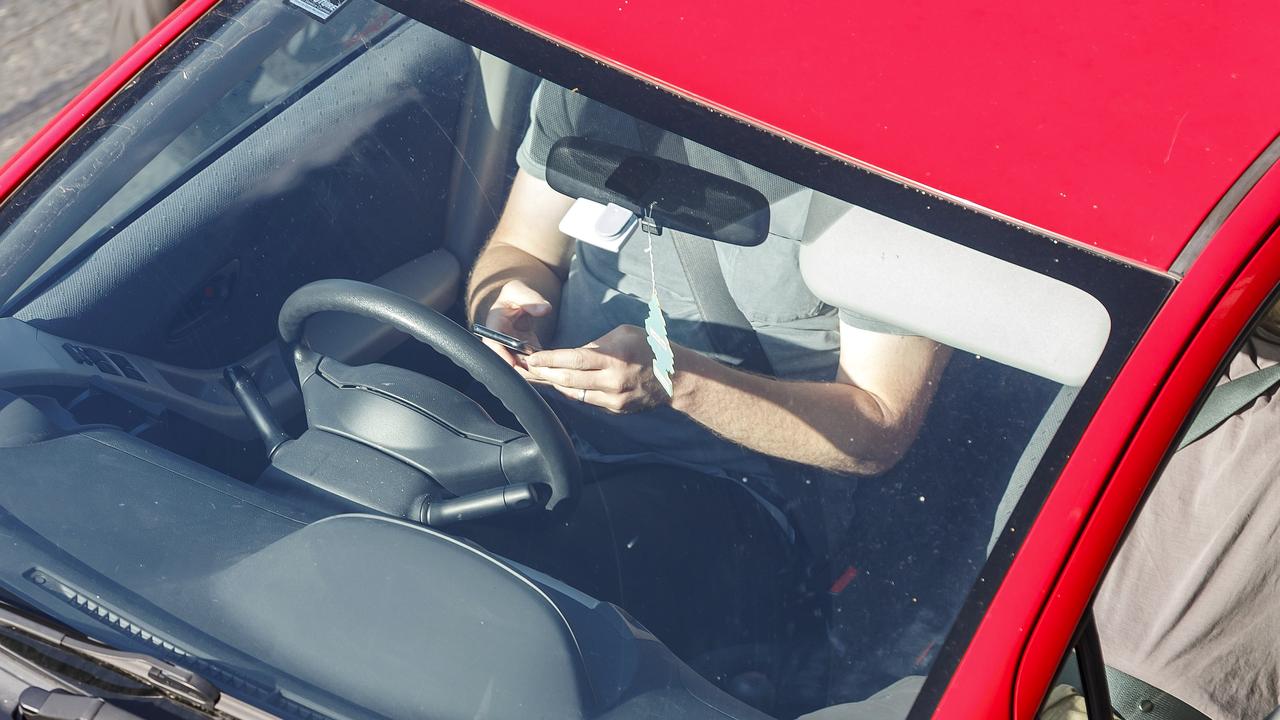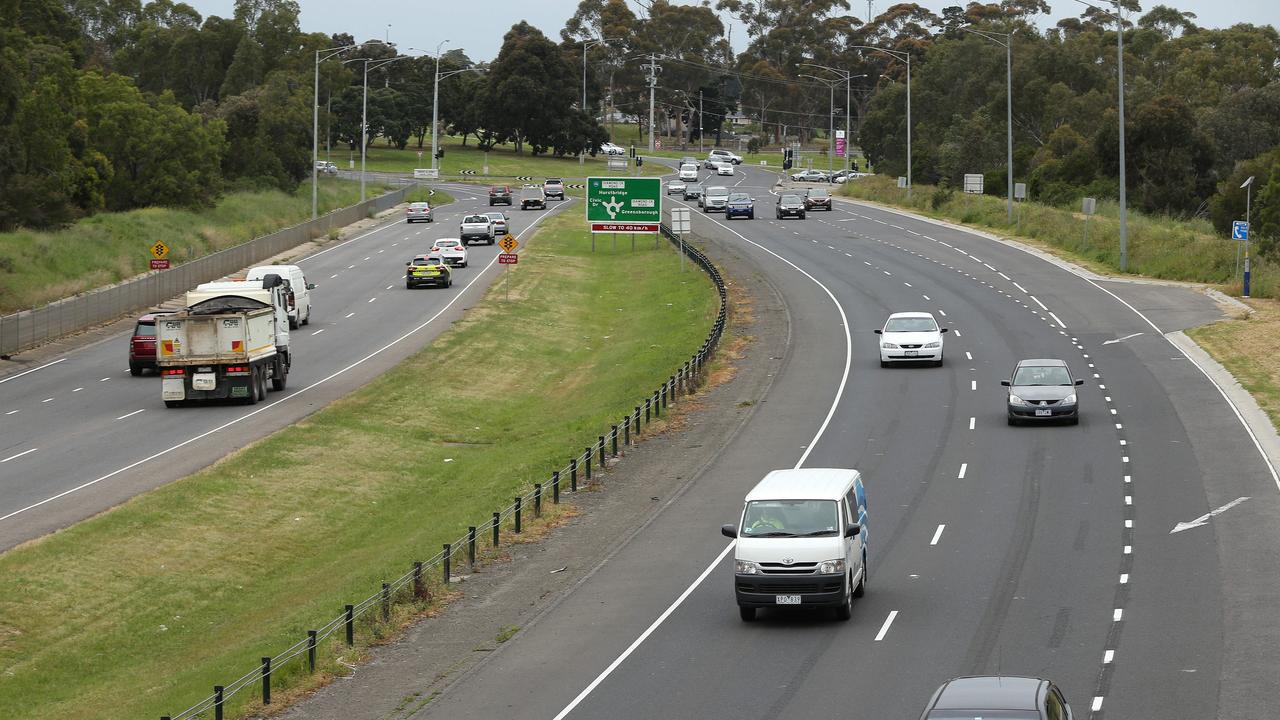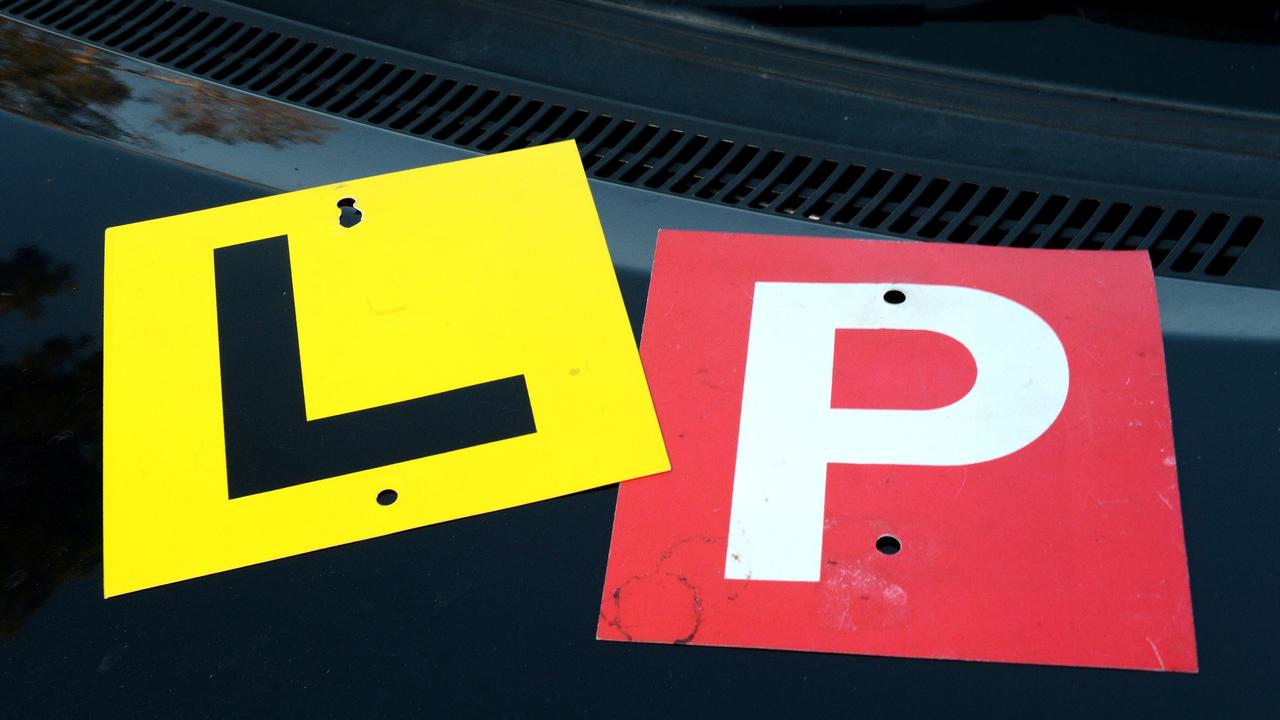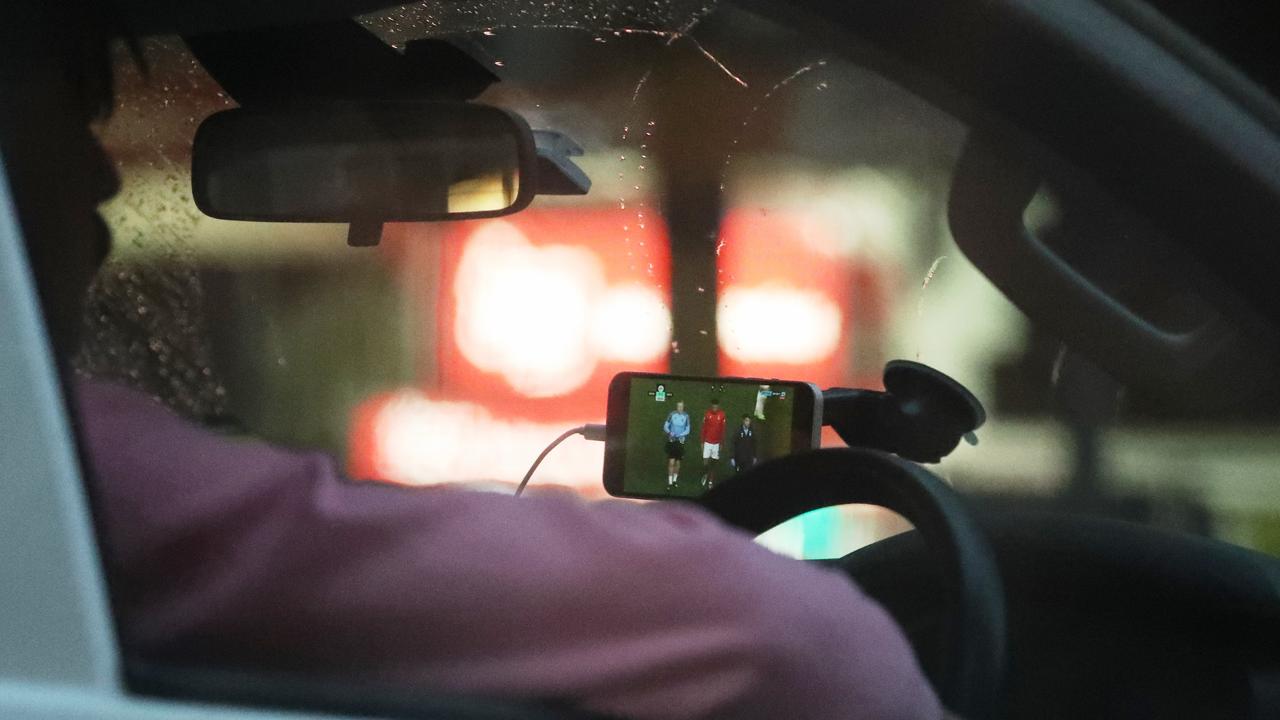Distracted drivers the target of new road rules set to come into effect in Victoria
Drivers in one state could face fines of up to $1849 and four demerit points if caught out doing these simple tasks behind the wheel.
Victorian motorists could be slapped with a $555 fine and four demerit points if caught driving distracted under new road rules set to come into effect next month.
Under the new rules, drivers will not be able to change a song on their phone, accept or reject phone calls or use navigation on a range of devices from March 31.
Drivers who hold a full licence will be banned from touching an unmounted portable device, such as a phone – even if it is off – while their vehicle is in motion.
Meanwhile L-platers and probationary drivers on both levels must pull over and park their cars to change a song and can’t use voice controls to operate any mounted or in-built devices while driving.
The state’s transport department VicRoads says the new rules are coming into force to combat the increasing distractions caused by new and advanced vehicle features.
“The rules reflect the significant increase of in-vehicle technologies and other technologies capable of distracting a driver and are designed to help keep people safe on our roads,” the department said on its website.
Mobile phone and seat belt cameras will be introduced in Victoria in the coming months to monitor driver and passenger behaviour.
These devices have the ability to capture those breaking the new rules, so here’s a breakdown of what you can expect to make sure you don’t get caught out.

Full-licence drivers
Motorists who hold an unrestricted licence are prohibited from touching an unmounted portable device such as a phone, tablet, laptop or any other electronic device while driving.
Under this rule, drivers can’t leave the device in their lap, look at a device in a passenger’s possession or pass a device to a passenger, however connecting the device to your vehicle’s Bluetooth prior to driving and using your phone to pay at a drive-through are allowed.
As for mounted devices, drivers can initiate, accept or reject an audio call, stream music, use navigation functions and adjust volume levels.
“For mobile phones and tablets, the mounting must be commercially designed and manufactured for that purpose, and the device must be secured in the mounting,” VicRoads said.
“As a general rule, drivers can use their mounted or in-built systems for functions such as music and navigation, provided they are not entering text, scrolling or viewing images or video.”
Similar rules also apply for wearable devices however taking calls, playing music and adjusting volume is only permitted if using voice controls.
Meanwhile, motorbike riders who have helmet devices can only operate them while riding if the action involves touching the device briefly or using voice commands.

Restricted drivers
VicRoads states the rules are more substantial for L and P platers due to them being subject to more restrictions and their lack of driving experience.
Like their full-licensed counterparts, L-platers and probationary drivers are barred from touching a portable device, scrolling on a device and resting a device on any part of their body while driving.
However, unlike full-licence holders, drivers in this category are not allowed to use voice controls to operate any mounted, wearable or in-built device, and are only permitted to use these devices if they’re set up before a journey commences.
“You must pull over and park to change a song or enter a different address. You are not permitted to touch a mounted device for any purpose during a drive,” VicRoads said.
Motorbike riders on a restricted licence can only use helmet devices to play music or provide directions, with these functions to be set up prior to the journey.

Other road users and exceptions
Cyclists, electric scooter riders, skateboarders, rollerbladers, and those using electric vehicle transporters are also subject to the above road rules.
However, those required to interact with a device while driving for work purposes are excused from some rules under the provision it’s a professional driving task.
This includes allowing rideshare, taxi or delivery drivers to accept or reject a job, permitting freight and bus drivers to gather information about upcoming jobs and the use of devices to maintain safety and security of passengers or cargo while driving.

Penalties
Drivers charged with illegal use of a mobile phone or other device while driving will incur a $555 fine and four demerit points, with that fine more than tripling to $1849 if the matter is heard in court.
Meanwhile those on L and P-plates will lose their licence if they accumulate more than four demerit points in a year.
For more information on the rules and penalties, head to VicRoads‘’s website.






